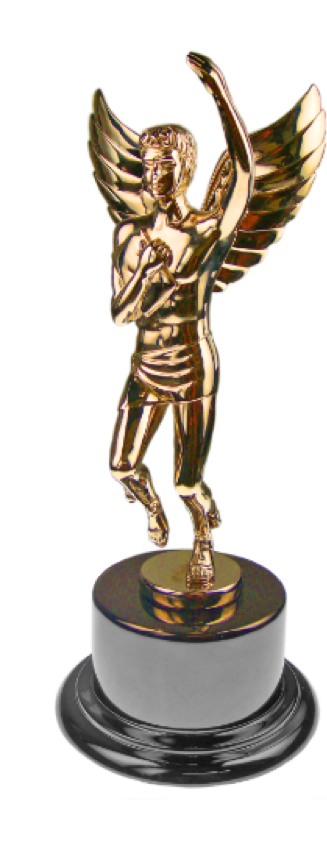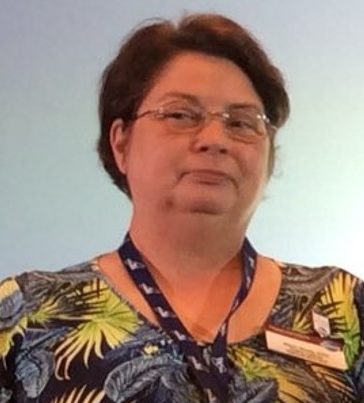By Shaheen Jamshed Mufti, Immediate Past President, Early Bird SpeakersB
The following is a transcript of a workshop delivered on Thursday 23 August 2018 at my home club, Early Bird Speakers at the request of our club President, Niels Footman. The focus was on how to be a General Evaluator both within one’s home club and in the wider Toastmasters community.
On a Wednesday morning, few months ago, I was standing in front of a group of about thirty people. I was at another Toastmasters club in London and I was the General Evaluator that morning.
I was also about to do something different. Inspired by many characters in Early Bird Speakers, I went up on stage and delivered my general evaluation to the audience, presenting each of the functionaries with specific feedback…and all of that for over 7 minutes…without notes – a personal challenge after having given general evaluations in the past, with notes.
I was thanked for my general evaluation and at the end of that meeting, five guests came up and spoke to me, wanting to visit Early Bird Speakers. And in the weeks that followed, all of them did.
Now, I’ve yet to have the opportunity to one day sit in that chair and be General Evaluator here at Early Bird Speakers, but I have had my fair share of evaluating at other clubs.
So, to begin with, what exactly does the General Evaluator do?
The General Evaluator provides feedback for the functionaries, meeting quality and those things that have not been evaluated during a meeting.
The General Evaluator provides a club with an opportunity to improve on different parts of the meeting, so that it can elevate itself in pursuit of excellence.
Now, those are the benefits for the functionaries of a meeting and for the club at large. But what are the benefits for you as General Evaluator?
Here are few of them:
- You have the potential and the power to improve the quality of future club meetings
- You are challenged to pay attention to and observe all parts of the meetings
- Exercise your critical thinking skills in ways you might not have done before
And if you are General Evaluator at another club, you can
- Challenge yourself by speaking in front of a group of strangers in a setting away from your home club environment
- Have the opportunity to network with other Toastmasters, invite them to visit your home club as guests, judges and GEs
- Show them what your home club is all about!
Overall, everyone benefits from you being a General Evaluator, whether it’s here at Early Bird Speakers or at another club.
Right, so you’ve decided to be the general evaluator one morning and our VP Education or VPE at another club has slotted you into the agenda. What next?
Well, for a great general evaluation, I have a few a suggestions that you can make note of.
You can divide your General evaluation process into three parts:
- Preparation
- The Evaluation
- Post Evaluation
PREPARATION
Once you have been assigned the role of GE, you can, in effect, start doing your homework.
- Easyspeak – See who is on the agenda and what roles will they be performing
- Arrive early and meet members of your club (or members of the club you are visiting)
- Have a notebook/paper at hand and two pens (in case one runs out!)
- Grab a copy of the agenda and check for any changes that have been made
- Reflect on what are the qualities of a good Toastmaster, Timekeeper, evaluator etc
- Sit and make notes during the meeting
- Can’t find a commendation or recommendation? Whisper and ask the person next to you. Our fellow club member, Julie did that once. Take advantage of any break some meetings might have to fish for recommendations for those who has already gone on stage.
THE EVALUATION
- Make use of your allotted time – Early Bird Speakers gives seven minutes to the general evaluator, many clubs have a time of 10 minutes. I operate in the Early Bird Time Zone so I end up finishing earlier when I have more time at my disposal – Use every minute you have!
- C-R-C (Commendation, recommendation, commendation) model is good – the sandwich of truth. If there is a packed agenda and limited time, R-C is a good alternative. Whilst the latter might seem a little ‘harsh’ as you will be launching into a recommendation without starting off with ‘gentler words’, remember that what you’re sharing is coming from a place of sincere intent to provide the speaker/functionary with genuine feedback that they can benefit from. If this is presented in a tactful manner then all is well. If visiting another club, it might be a good idea to see what their usual practice is. In most cases, it is C-R-C and they might be expecting that. Perhaps you can tailor your evaluation according to the needs/expectations of that club.
- Provide specific, individual feedback to each of the functionaries being evaluated – look out for those things that took place on stage, preparation the functionary might have done off stage as well as impact on audience.
- Because the roles are so diverse when you’re being GE, you can look out for things specific to each role. F instance, I often commend/recommend timekeepers on whether they bring something extra to the role, like a bit of humour or personality. But you can just as easily evaluate them on whether they’re getting the basics right. Are they making the names of the Table Topics speakers clear, for instance? Are they summarising what the Table Topics speakers said?
- As another example, is the Toastmaster doing the role properly? Are they combining personal presence with efficient running of the meeting? In the intros, are they building up each speech/speaker?
- Avoid clichés where possible (unless severely affecting speech) i.e. hand clasping – as an alternative, provide the speaker with a challenge – E.g. I’d like to see fluid hand gestures
- If you’re up for it, take on a personal memory and retention challenge – no notes. However, providing valuable feedback to each functionary takes priority over any personal challenge, so if you feel that someone will miss out on valuable feedback due to forgetfulness, keep your notes close by!
POST EVALUTION
- Get feedback – How did you do? Though you are the final ‘disher-outer’ of feedback during a meeting, it doesn’t make you immune to receiving any yourself – Looking at the official TM ballot sheet, there is a section for giving feedback to a GE. Ask for feedback from the meeting attendees. Find ways to improve. One member from another club (after I was GE) said that I need to speak more about what was ‘below the surface’ – a polite way of saying my evaluation lacked depth, but that gave me the feedback to review on what I did and how I could do better.
- If you’re at another club, network network network! Speaking to others, you might find future judges, speakers, general evaluators and guests for your club. Also, you might make friends, business partners or even lovers!
Summary, you all have the ability to be General Evaluators at your home club or at another club. Give yourself the challenge to step up onto the stage and speak in ways you’ve never done before. If you feel you need more experience evaluating before sitting on that [gesturing to the GE seat in the Early Bird Speakers meeting room] throne or visiting other clubs, don’t worry – I only had one speech evaluation under my belt before I went on my GE tour to other clubs.
And imagine for a moment – if there are 25 members in your home club – if each one you visited one club each – 25 different clubs (can be anywhere in the world) with another 25 members each, that is theoretically 625 Toastmasters finding ways to improve as speakers and leaders and apply what they’ve learnt in their daily personal and professional lives – thanks to you!
And it all starts by you getting up on stage and being General Evaluator.
Now get out there and get GE-ing!
Have fun!
3 point Summary:
- Like any speech, even the role of being General Evaluator can benefit from preparation. Have your tools (pen, paper, agenda and spare pen) at hand
- When presenting the evaluation, provide specific feedback to each of the functionaries based on their individual roles
- As you would after any speech, seek out feedback on how you can improve so the next time, you can provide a better general evaluation
Have a great time providing fantastic feedback to other Toastmasters and positively affecting the wider Toastmasters community.




